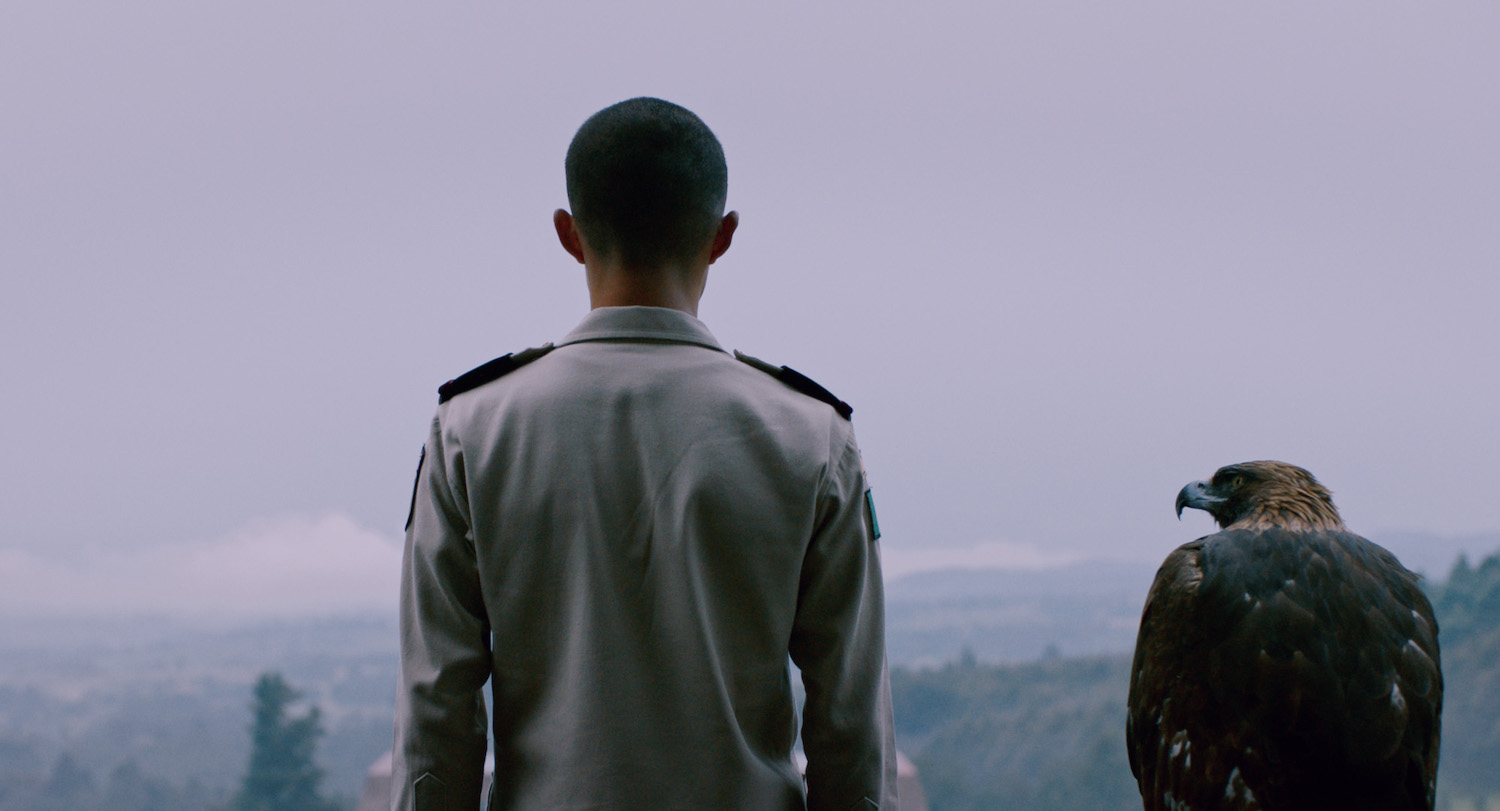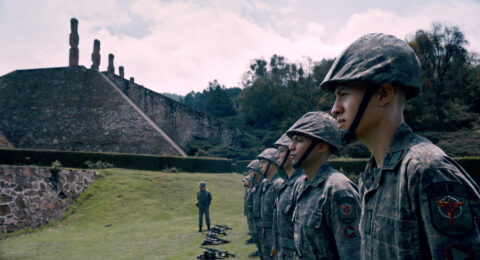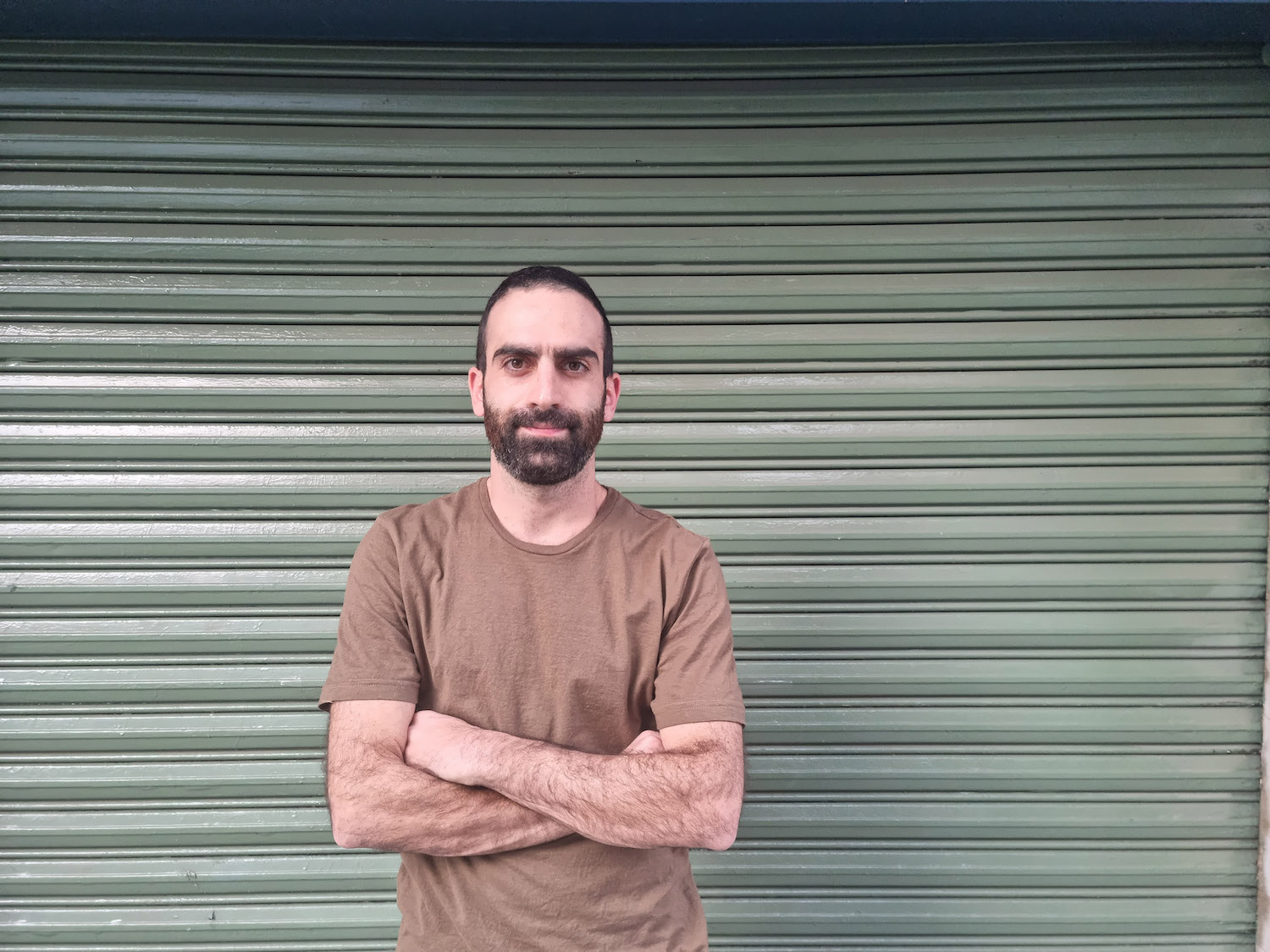The recruits are known as potros. Meaning Colt in English (a baby horse), the term refers to their metaphorical inability to find their feet among the brutal, cultish, Mexican army.
Hazings, beatings, tortures and sadistic games abound; they’re all treated as part of the necessary firmament that makes the military great.
No one complains. At least not at first. You get what you signed up for. You’ve signed up to become a baby, the lowest of the low, an empty canvas for the higher-ups to practice their evils upon.
But the privates — literally stripped to their privates in an early indicative demonstration of the dehumanisation they face throughout Heroic (David Zonana, 2023)— haven’t signed up for honour or glory. They’re there for a paycheck; to provide for themselves and their families. Through carefully observed scenes that shock and entice in equal measure, this is a film that carefully calculates the moral and psychological cost of joining such a rotten institution.
Exposing the toxic masculinity of the army is nothing new, but director David Zonana finds a fresh angle through fresh angles, favouring icy, medium-distance takes that soak in the atmosphere while giving it a touch of the absurd. It also helps to literally take us out of the action and think about it critically. Intense close-ups would’ve made the whole thing far too sadistic and sordid.

Our shaven, skinny, scared hero Luis (Santiago Sandoval Carbajal) is nothing special, one face amongst many. But for some strange reason, he is given special status among the depraved higher-ranking officers. In return for avoiding beatings, he becomes part of their inner circle.
Zonana may use documentary-like observation techniques to show the spectacle amongst this odd landscape — replete with Aztec architecture, monolithic structures and even an amphitheatre suggesting the fights of ancient heroes — but the inner struggle is closer to a traditional moral awakening, touching on various military classics from Come and See (Elem Klimov, 1985) to the first half of Full Metal Jacket (Stanley Kubrick, 1987) with a little bit of the harsher edge of An Officer and a Gentleman (Taylor Hackford, 1982) sprinkled in.
Carbajal, drawing on his own experience in the military, brilliantly brings this degradation and filth to life, showing just how easy it is to lose yourself amid state-sanctioned evil. The best part of this film is its refusal to equivocate. Some things deserve to be called out for what they are. There’s nothing Heroic about any of this.
Interview with David Zonana
Tell me what inspired you to make a film about the toxic side of the Mexican military?
Mexico is a place where the influence of the military has been rising. And society has been affected by it. Just living there all my life has put me in contact with this world. I wanted to understand it in a deeper, rooted way. We’re aware of what’s going on regarding violence between the army and the cartels, and human rights abuses. But we are not exposed to the root of the problem. Who are these people? Why do they want to get into the army in the first place?
How many soldiers did you talk to in the writing and researching process?
A lot. Tens of conversations, maybe 30-40 ex-cadets that were in the army in some point. Most of the actors were in the army, different schools within the army. So, there was a lot of research. In conversations and in texts. I had to do a big research because I didn’t know anything about how it works.
“Seeing violence wouldn’t make a difference.”
The location, with this massive Aztec building, is amazing. Is this a real military base?
No. The real Military school also has this Aztec architecture, which is quite ironic, but they didn’t allow me to shoot there for obvious reasons. But we found another place that’s not anything to do with the military and recreated it. This place is just amazing. It’s built in the 80s and pretty much abandoned. It had the same essence of the real school.
What’s really interesting is that the film has a lot of violence — especially the images they watch on their phone — but you film them in widescreen master takes where you don’t see what’s going on. Was it important to have that distance from what you’re depicting?
I think most of the violence in the film happens off-screen in a way. I would only portray violence visually if we need to see it for any reason, which most of the time is not the case. Because the important thing for me is not the violence per se, but what it provokes in the character. Seeing it wouldn’t make a difference.
“Indigenous people don’t know they are indigenous anymore.”
There’s a strong theme about the indigenous people in the army where the characters have to hide that aspect of themselves. How diverse is the army itself? Are there a lot of people coming from an indigenous background?
The identity issue in Mexico is really complex. It’s not like I’m saying, “Yeah, in the military there’s a lot of indigenous people” because the indigenous people don’t know they are indigenous anymore. They’ve lost all the culture, but their roots come from there. That’s what Luis portrays. He doesn’t want to be there anymore. It’s an example of losing your identity inside Mexico, where most of the people come from this descent, but don’t acknowledge it anymore. They are also fighting for an institution that doesn’t recognise their ancestors.
Was it hard for the actors to play these roles on set?
Not really because they lived it. They’ve lived worse things. When they started watching the film, they said it’s worse in real life. So, for them, it’s not really a big deal.
Michal Franco is a producer on the film. Tell me about working with him?
I’ve been working with Michal for a long time. My career in film started with him when I was 22. That was my first approach to the film world. I learned a lot with him, we developed a good relationship through the years. He produced my first film and then this one. I kind of changed direction and the relationship continued a different way.
So, you were 22 and just applied for this job because…
My brother was an investor in After Lucia (2012). I met Michal through him. I dropped out of college and was studying finance. We got along and he told me, “I’m starting this company, you can work here just as an assistant” and I was like “Yeah, sure!”
“I’ve been working with Michal Franco for a long time.”
Talking of producing, did you get state funding? Or was the subject matter too much?
Yes. It’s a question I’ve been asked before. The answer is they’re doing it the right way because they’re not getting involved politically. The committee that selects the film funds are just people in the industry. So we invite people in the industry every six months and they don’t get their hands on it which is a good thing.
How do you think the film will be received by members of the military?
Controversial for sure. That would be good because that’s the idea. Of course they won’t like it. I think they’ll be smart enough not to comment on it, because it doesn’t work in their favour.
Do you have plans for another film?
Not really. I’m writing but taking it easy at the moment.
After Workforce (2019) and now this, will it focus on another institution?
I don’t think my next project will be specifically focused on another institution, but more on identity.
Redmond is the editor-in-chief of Journey Into Cinema.

